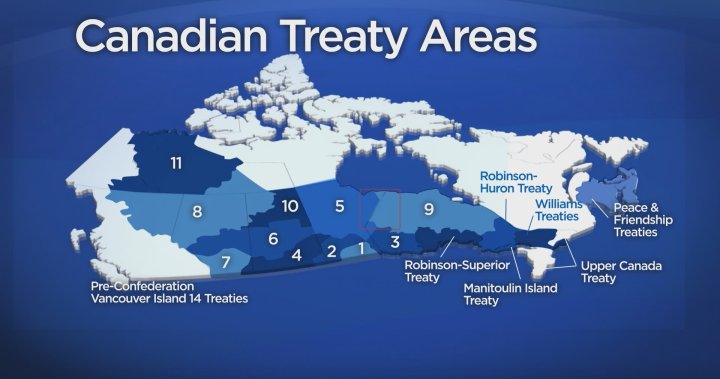The simmering tensions between Alberta and Ottawa have taken a new dimension as Indigenous leaders from Alberta and Saskatchewan firmly position themselves against any potential separation movement. In a powerful display of solidarity at a Calgary gathering this week, Chiefs representing Treaty 6, 7, and 8 territories made it clear that their nations would not be part of a breakaway Alberta, challenging Premier Danielle Smith’s increasingly assertive stance toward federal relations.
“The treaties were signed with the Crown, not with provinces,” stated Treaty 8 Grand Chief Arthur Noskey, highlighting the historic and legal relationship Indigenous nations maintain with the federal government. “If Alberta wants to go its own way, they can go – but our territories remain under the treaties we signed.”
This declaration comes at a particularly sensitive moment in Alberta politics. Premier Smith’s United Conservative Party government has escalated rhetoric about provincial autonomy through the controversial Alberta Sovereignty Act and ongoing discussions about establishing a provincial pension plan independent from the Canada Pension Plan.
Indigenous leaders emphasized that their treaties predate Alberta’s formation as a province in 1905, establishing a direct relationship with the Canadian Crown that cannot be unilaterally altered. Treaty 6 Grand Chief Cody Thomas reinforced this point, noting that “our agreements were made nation-to-nation with the Crown, and these sacred promises cannot be rewritten by provincial ambitions.”
The economic implications of these tensions are substantial. Alberta’s energy sector, which contributes significantly to Canada’s GDP, operates extensively on traditional Indigenous territories. Any separation scenario would face immediate legal challenges regarding resource governance and treaty obligations that could destabilize the energy market and investor confidence.
When approached for comment, Premier Smith’s office issued a statement emphasizing that Alberta’s government “respects the unique relationship between First Nations and the Crown” while maintaining that the province’s autonomy initiatives are about “securing a fair deal for Albertans within confederation.”
Political analysts suggest this Indigenous opposition represents a significant roadblock to separatist ambitions. “This creates a complex legal and territorial puzzle that separation advocates haven’t adequately addressed,” noted Dr. Melissa Carter, political science professor at the University of Calgary. “You simply cannot redraw the map of Canada without addressing Indigenous sovereignty and treaty rights.”
The Assembly of First Nations has expressed support for the position taken by the Treaty Chiefs, with National Chief Cindy Woodhouse stating that “the Crown’s honor is at stake in upholding these treaties, regardless of provincial politics.”
As federal-provincial tensions continue to evolve, these Indigenous perspectives add a critical dimension to the national unity debate. Treaty relationships, established long before Confederation, present constitutional questions that transcend provincial boundaries and political mandates.
The fundamental question now facing Albertans and all Canadians is whether the path to addressing legitimate provincial concerns about federal policies requires respecting pre-existing nation-to-nation relationships that form the foundation of Canada itself.










